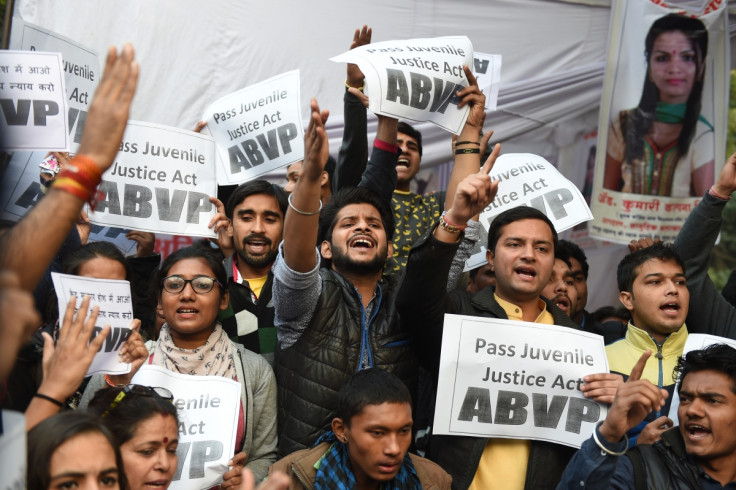India: New law allowing juvenile rapists to be tried as adults takes effect

A controversial Indian law that allows juveniles above the age of 16 to be tried as adults when charged with rape and other heinous crimes has come into effect. The Indian Juvenile Justice Act of 2015, which came into force on 15 January, was the nation's response to a brutal gang rape and murder of a woman in the Indian capital in 2012.
The legislation, passed by the Rajya Sabha, the upper house of India's Parliament, was signed into act by the President Pranab Mukherjee on 4 January. Earlier, juveniles could be tried only by the Juvenile Justice Board and received a maximum sentence of three years at a correction home.
Following the brutal gang rape of the medical student in Delhi on 16 December 2012, one assailant was tried as an minor and served a three-year term in a juvenile home. Various social groups had pressured the Indian government to bring a harsher law to deal with sex offenders, and, in particular, under-aged ones. The juvenile convict in the Delhi rape case was just shy of his 18
The juvenile convict in the Delhi rape case was just shy of his 18<sup>th birthday when sentenced. He completed his term at a correctional home and was released in December 2015 to huge protests from the rape victim's family and supporters. He has never been identified.
Under the new act, the Juvenile Justice Board will be allowed to conduct a preliminary enquiry to determine if a juvenile is guilty of a heinous offence. It can then opt to transfer the cases to a Children's Court (Court of Session) after a preliminary assessment or order them to be tried in an ordinary court.
© Copyright IBTimes 2025. All rights reserved.






















